
The noted blogger Fjordman is filing this report via Gates of Vienna.

The 20th and the beginning of the 21st centuries have witnessed the most spectacular population growth in human history, most of it in Third World countries. The world’s population, estimated at
6.4 billion in 2006, grows by more than 70 million people per year. In sixty years, Brazil’s population has increased by 318 per cent; Ethiopia’s by
503 per cent. There are now 73 million people in Ethiopia — more than the population of Britain or France.
At the same time, many of the most economically successful countries, both in the East and in the West, have problems with ageing or declining populations. At its peak around 1910, one-quarter of the world’s population lived in Europe or North America. Today the percentage has probably declined to about one-eighth. South Korea’s birthrate has dropped to the point where the average Korean woman is expected to have only one child throughout her life. The U.S. still has a birthrate of more than two, while the U.K. saw births inch up from 1.63 to 1.74 and Germany from 1.34 to 1.37 in the same period. The low birthrate problem in Asia is rooted in women’s rising social and economic standing. Japan’s birthrate was 1.28, comparable to Taiwan’s 1.22, and Hong Kong’s 0.94.
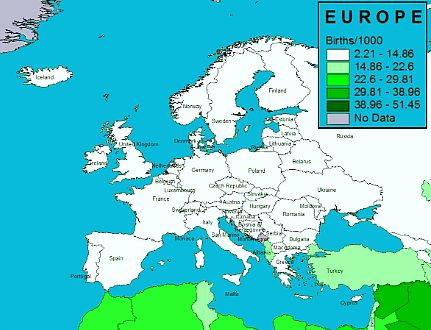
“Europe and Japan are now facing a population problem that is unprecedented in human history,”
said Bill Butz, president of the Population Reference Bureau. Countries have lost people because of wars, disease and natural disasters but never because women stopped having enough children. Japan announced that its population had shrunk in 2005 for the first time, and that it was now the world’s most elderly nation. Italy was second. On average, women must have 2.1 children in their lifetimes for a society to replenish itself, accounting for infant mortality and other factors. Only one country in Europe – Muslim Albania – has a fertility rate above 2. Russia’s fertility rate is 1.28.
Writer Spengler in the Asia Times Online commented that demography is destiny: “Never in recorded history have prosperous and peaceful nations chosen to disappear from the face of the earth. Yet that is what the Europeans have chosen to do. Back in 1348 Europe suffered the Black Death.” “The plague reduced the estimated European population by about a third. In the next 50 years, Europe’s population will relive — in slow motion — that plague demography, losing about a fifth of its population by 2050.”
It’s numbers like these that have prompted Singapore’s former Prime Minister Lee Kuan Yew to state that “it’s demography, and not democracy, that will be the critical factor shaping growth and security in the 21st century. High rates of births are contributing to the booming populations which are dragging down developing nations. Meanwhile falling birth rates are sapping the growth of developed nations.” “Although migration is one option developed countries are looking at to keep their economies vibrant,” Lee said, “it might not solve all their troubles and might even breed social tensions.” According to him, governments may not be able to afford to keep out of personal issues like sex, marriage and procreation much longer.
 Historian Niall Ferguson reveals how Islam is winning the numbers game. “If fertility persisted at such low levels, within 50 years Spain’s population would decline by 3-4 million, Italy’s by a fifth. Not even two World Wars had inflicted such an absolute decline in population.” “In 1950 there had been three times as many people in Britain as in Iran. By 1995 the population of Iran had overtaken that of Britain. By 2050, the population of Iran could be more than 50 per cent larger. At the time of writing, the annual rate of population growth is more than seven times higher in Iran than in Britain.”
Historian Niall Ferguson reveals how Islam is winning the numbers game. “If fertility persisted at such low levels, within 50 years Spain’s population would decline by 3-4 million, Italy’s by a fifth. Not even two World Wars had inflicted such an absolute decline in population.” “In 1950 there had been three times as many people in Britain as in Iran. By 1995 the population of Iran had overtaken that of Britain. By 2050, the population of Iran could be more than 50 per cent larger. At the time of writing, the annual rate of population growth is more than seven times higher in Iran than in Britain.”
Even in developing countries such as fast-evolving China, population growth is falling, and in the Indian subcontinent, Muslims have higher growth rates than Hindus or other non-Muslims. We thus have a situation with an explosive population growth in failed countries, while many of the most economically and technologically advanced nations, Eastern and Western, have stagnating populations. This strange and possibly unprecedented situation, which could perhaps be labelled “survival of the least fit”, will have dramatic consequences for the world. It is already producing the largest migration waves in history, threatening to swamp islands of prosperity in a sea of poverty.
 Lenin stated that “Marxism is based on internationalism or it is nothing.” “The emancipation of the workers is not a local, nor a national, but an international problem,” wrote Marx. Karl Marx has defined the essence of Socialism as abolishing private property. Let’s assume for a moment that a country can be treated as the “property” of its citizens. Its inhabitants are responsible for creating its infrastructure. They have built its roads and communications, its schools, universities and medical facilities. They have created its political institutions and instilled in its people the mental capacities needed for upholding them. Is it then wrong for the citizens of this country to want to enjoy the benefits of what they have themselves created?
Lenin stated that “Marxism is based on internationalism or it is nothing.” “The emancipation of the workers is not a local, nor a national, but an international problem,” wrote Marx. Karl Marx has defined the essence of Socialism as abolishing private property. Let’s assume for a moment that a country can be treated as the “property” of its citizens. Its inhabitants are responsible for creating its infrastructure. They have built its roads and communications, its schools, universities and medical facilities. They have created its political institutions and instilled in its people the mental capacities needed for upholding them. Is it then wrong for the citizens of this country to want to enjoy the benefits of what they have themselves created?
According to Marxist logic, yes.
Imagine you have two such houses next to each other. In House A, the inhabitants have over a period of generations created a tidy and functioning household. They have limited their number of children because they wanted to give all of them a proper education. In House B, the inhabitants live in a dysfunctional household with too many children who have received little higher education. One day they decide to move to their neighbors’. Many of the inhabitants of House A are protesting, but some of them think this might be a good idea. There is room for more people in House A, they say. In addition to this, Amnesty International, the United Nations and others claim that it is “racist” and “against international law” for the inhabitants of House A to expel the intruders. Pretty soon, House A has been turned into an overpopulated and dysfunctional household just like House B.
This is what is happening to the West today. Europe could become a failed continent itself, importing the problems of Africa and the Islamic world. The notion that everybody should be free to move anywhere they want to, and that preventing them from moving into your home is “racism, xenophobia and bigotry,” is the Communism of the 21st century. And it will probably have the same effect, only on an even large scale.
Communism creates poverty because when people don’t own property, they cannot plan for the future. If you and your children cannot enjoy the fruits of your efforts and work, but have to watch others take it away, you will no longer bother to go the extra mile or mobilize your full creativity to generate improvements.
Unrestricted immigration from failed states will eventually destroy global centres of excellence, the same way Communism did. This is definitely bad for the people who will lose what were once functioning countries, but in the long run bad for everybody else, too. It will deprive the inhabitants of Third World countries of the incentives needed to change their own nations if they can simply move somewhere else and refrain from confronting the reasons for their failures.
Many pro-immigrationists use slogans such as “No human is illegal” to argue that immigrants who have entered a country illegally should be allowed to stay. But countries which don’t differentiate between citizens and non-citizens cannot long survive. A favorite quotation in the US is from the poem The New Colossus by Emma Lazarus; a sonnet written in 1883 that is now engraved on a wall in the base of the Statue of Liberty:
“Give me your tired, your poor, Your huddled masses yearning to breathe free, The wretched refuse of your teeming shore. Send these, the homeless, tempest-tost to me, I lift my lamp beside the golden door!”
It’s a great poem, but it’s just that, a poem. The global population today is 6.5 billion, and will rise to 8, 9 or even 10 billion in the near future. The “poor and wretched” of the earth make up literally billions of people. Should they all move to the USA? How many people can Americans take in before their country falls apart? If enacted, the Comprehensive Immigration Reform Act from 2006 will allow an estimated 103 million persons to legally immigrate to the U.S. over the next 20 years. Can any nation possibly assimilate such a large number of people in such as short period of time?
The mantra that “diversity is enriching” does not have any real basis in facts. The logic behind this line of thinking is that receiving impulses and ideas from as many different cultures as possible is to your advantage. First of all, not all “cultural impulses” are equally beneficial, as can be witnessed by the rise in honor killings in the West because of Muslim immigration. And second of all: Why should this be an argument in favor of immigration? We have the Internet, global television and travel around the world much more frequently than ever before. We probably receive more information and “cultural impulses” than we are able to digest.
There are more than 20 member countries in the Arab League. Does “cultural diversity” increase globally if, say, Denmark becomes Arabized due to immigration? You would then get just another Arab country, while the only Denmark in existence would be erased. If “cultural diversity” is our yardstick, today’s Muslim immigration to Europe is a disaster. We are replacing unique cultures developed over centuries with burkas and sharia.
Moreover, many politicians and intellectuals fail to appreciate just how much communication technology has changed the rules of the game. When people praise immigration that took place a hundred or two hundred years ago, they are talking about a world that no longer exists, like generals planning for the last war. Modern technology means that immigrants can live in Western countries as if they never left home, visit their original homeland frequently, watch satellite TV in the language of their parents instead of the language of their adopted country, and stay in touch with their relatives back home through the Internet.
Globalization has made it easier than ever not just to move physically to the other side of the world, but also to live one place physically and on the other side of the world mentally. The full implications of this technological revolution are too complicated to be properly predicted or understood by any one individual, but they are bound to have far-reaching and sometimes unsettling consequences for the nations involved, especially if combined with a deliberate, open-border ideology.
Observer Mac Johnson points out that in the past, admission into America was regarded as a very rare and generous gift. Today, admission into the US or any Western democracy “is regarded by many as something between a civil right and an entitlement. Indeed, many seem to believe that the host population should be grateful to them for having arrived. Many immigrants, therefore, arrive as colonists, wishing only to set up a slightly wealthier version of their homeland.” He also points out that until the mid-20th Century, immigration to America occurred from a very restricted pool of nations. “For all our celebration of the great melting pot, America was mostly melting European peoples in that pot.” “These peoples shared a great deal of cultural inheritance before ever setting foot in America.”
Besides, it is not clear whether experiences from the USA, Canada or Australia can easily be transferred to Europe. The colonization of and immigration to these countries was indeed violent and unacceptable by today’s moral standards. To put it in a brutal way: A country can only become a “successful immigration society” if the indigenous population has been marginalized. In the USA today, only about 3% of the population is made up of Native Americans; the rest are all descendants of immigrants.
It is wrong to compare Europeans with European Americans, Europeans should rather be compared with Native Americans. Europeans are our own Indians. When Europeans dig in the earth to uncover archaeological finds, we are finding traces of our own ancestors. All our folklore, culture and history are intimately tied to the land. Which is why the current immigration could lead to a string of civil wars, as the indigenous Europeans will not in the long run put up with being displaced in their own countries.
British commentator Anthony Browne, author of the book “Do We Need Mass Immigration?,” points out that the migration waves we are witnessing now are unique. “What is happening now is the result of sustained migration pressure the likes of which the world has never seen before.” “The revolution in “human rights” means that as soon as anyone gets past passport control they are pretty much guaranteed to stay. 47,000 illegal immigrants were detected in 2000, but just 6,000 were sent home.” “A hundred years ago, most people in the west rarely moved even to the next village; now whole villages from Bangladesh are relocating to northern England.”
 He quotes the then president of Bangladesh, Sheikh Hasina, who in 2000 was asked by the Los Angeles Times how the country was going to feed, clothe, house and employ the expected doubling of her population by 2050. She replied: “We’ll send them to America. Globalisation will take that problem away, as you free up all factors of production, also labour. There’ll be free movement, country to country. Globalisation in its purest form should not have any boundaries, so small countries with big populations should be able to send population to countries with big boundaries and small populations.”
He quotes the then president of Bangladesh, Sheikh Hasina, who in 2000 was asked by the Los Angeles Times how the country was going to feed, clothe, house and employ the expected doubling of her population by 2050. She replied: “We’ll send them to America. Globalisation will take that problem away, as you free up all factors of production, also labour. There’ll be free movement, country to country. Globalisation in its purest form should not have any boundaries, so small countries with big populations should be able to send population to countries with big boundaries and small populations.”
Browne also confronts the assertion that “mass immigration is normal, irreversible and beneficial to host societies” as a “damaging illusion. Rather, the current experience of developed western countries, faced with huge inflows of people (…) is unprecedented and damaging. The process can and should be stopped, in the interests of the rich diversity of nations it will otherwise crush.” “In 1924, the US government passed legislation that effectively closed the door on European immigration, opening the door to immigration from poor countries with new legislation only in 1965. Australia has shown in recent years that tough policies can reduce illegal immigration to virtually zero.” “Pro-immigration campaigners who tell the people of Europe that ‘mass immigration cannot be stopped’ are adopting the policies of despots through history of quelling opposition by telling opponents that resistance is futile. All that is needed is political will.”
American military historian and columnist Victor Davis Hanson talks about how mass immigration is the product of a de facto alliance between the Libertarian Right and the Multicultural Left. The economic Libertarians can be represented by Swedish writer Johan Norberg, author of the book In Defence of Global Capitalism. Norberg can have valuable insights into the flaws of the Scandinavian welfare state model. However, his commitment to a “free market, open border” ideology blinds him to the threat posed by Muslim immigration, an ideological blind spot that is almost as big as the ones we find in Marxists. According to him, “at the moment there is a problem. The right supports one part of globalisation — the free movement of capital and goods — while the left tends to support another part, the free movement of people.”
Norberg believes immigration is already so extensive it would be unwise to halt it. Pointing out there were 15 million Muslims in Europe, he noted in a 2003 article: “If we close the borders, if we alienate this substantial minority, we risk creating resentment between ethnic and religious groups, and only the fundamentalists would gain.” “If people were allowed to cross borders at will, they would take their ideas and their labour and skills with them. This is all part of free trade, and it’s a paradox that many liberals don’t see this.”
Japan has a declining and ageing population, Yemen and Pakistan have booming populations. Does anybody seriously believe that it would be “good” for the Japanese to open their doors to millions of Muslims from Yemen? “Do you have any education?” “Yes, I know the Koran by heart and can say ‘Death to the infidels!’ in ten different ways.” “Splendid, just what we need here in Japan. Can you start tomorrow on developing a new line of plasma TV screens for SONY?”
When it comes to stagnating populations and Muslim immigration, the problems are not nearly as damaging as the cure.
Among political right-wingers, there is frequently a belief that what is good for business interests is good for the country. The problem is, this isn’t always true. There is sometimes a gap between the short-term interests of Big Business for cheap labor from Third World countries, and the long-term interests of the country as a whole. You cannot compete with cheap commodities from Third World countries unless you lower the general wages to Third World levels.
A few decades ago, Prime Minister Lee Kwan Yew realized that Singapore could never win the worldwide competition to offer cheap labor. He decided instead that the country was to become a high value-added producer. To Lee, that meant wages had to be high enough to encourage Singapore’s businessmen to invest in labor-saving technology. To raise Singapore’s salaries he had to make sure that local wages wouldn’t be undercut by migrants. Yes, you could pay an unskilled Bangladeshi $400 dollars a month. But in that case you had to pay the state another $400 a month.
In Europe, the one nation that has proved to be most successful in technology, ”Nokia nation” Finland, is also perhaps the one country within the EU that has accepted the least amount of immigration. Today, this small Nordic nation boasts a thriving hi-tech economy ranked the most competitive in the world and the best educated citizenry of all the industrialized countries. Neighboring Sweden, in contrast, with the largest per capita immigration in Europe, is in serious economic decline, and the only thing growing seems to be the crime rates.
Ethnically homogeneous nations enjoy a “trust bonus” which reduces the amount of conflict. There is little evidence that any theoretical “diversity” bonus from immigration will cancel out the loss of this “trust bonus.” South Korea and Japan are among the world leaders in technology. They are both ethnically homogeneous nations. Even China, which does have significant ethnic minorities, could soon be more ethnically homogeneous than many so-called Western nations. There will be no lack of “diversity” in the 21st century, but there could be a lack of functioning, coherent nation states. Maybe the West will “celebrate diversity” until our countries fall apart, and global leadership will be transferred to East Asia.
Yes, it is true that the ability to attract ambitious and talented scientists from other countries has benefited the USA in the past, and given it an edge over Europe. However, it is not without dangers to “celebrate diversity” in a country as diverse as the US. Americans should try celebrating what binds them together instead, or they may wake up one day and discover that they don’t really have a lot in common. What then for the United States?
Anthony Browne notes that Britain “became the largest economic power in the world in the nineteenth century, in the almost complete absence of immigration to these isles. Japan became the world’s second largest economy after the second world war in the almost total absence of immigration.” “Britain can never compete on the basis of low wages with low cost countries such as China for the simple reason that the cost of living is so much higher, and it is a mistake to try. Although cheap labour immigration may have staved off the demise of those industries for a short while, it also compromised them by encouraging them to go down the cheap labour route, and discouraging them from going up the high productivity/value added route.”
The revered former Chairman of the US Federal Reserve, Alan Greenspan, stated in a testimony given to the U.S. Senate: “Although discovery of new technologies is to some degree a matter of luck, we know that human activities do respond to economic incentives. A relative shortage of workers should increase the incentives for developing labor-saving technologies and may actually spur technological development.”
Robert Rowthorn, academic economist, criticizes the claim, frequently repeated by Tony Blair’s Labour government since it took office in 1997, that “if we don’t have immigration, we won’t have economic growth.” According to Rowthorn, “if you repeat something often enough, you can perhaps make people believe it.” There is no evidence “that large-scale immigration generates large-scale economic benefits for the existing population as a whole. On the contrary, all the research suggests that the benefits are either close to zero, or negative” as unskilled migrants and their families often are net consumers of taxes.
“Immigration can’t solve the pensions crisis, nor solve the problem of an ageing population, as its advocates so often claim. It can, at most, delay the day of reckoning, because, of course, immigrants themselves grow old, and they need pensions.” “The injection of large numbers of unskilled workers into the economy does not benefit the bulk of the population to any great extent. It benefits the nanny-and housecleaner-using classes; it benefits employers who want to pay low wages; but it does not benefit indigenous, unskilled Britons.” “While Britain has always had immigration, the recent influx is totally without precedent in modern times. Relative to population, the scale of immigration is now much greater than during any period since the Anglo-Saxon and Danish invasions over a thousand years ago.”
Rowthorn also points out, correctly, that “refugees and others granted special leave to remain under the asylum rules account for only 10 per cent of immigration to Britain. Most permanent immigration consists of people who are economic migrants together with their dependants.” Most of them aren’t people fleeing persecution.
People smuggling has become one of the world’s biggest and most lucrative businesses, with professional smugglers who demand high payments. In one case in Norway, a boy around eight years old said his mother and siblings in Kosovo were dead. An investigation into his case, however, found his parents and siblings living in Greece. Fully 94 percent of would-be refugees arriving in Norway lack valid identification papers. In the last four years, 50% of those who have been refused asylum in Sweden have gone underground and have simply vanished. And of the half who have actually been sent home, a full 20% have come straight back to Sweden to try their luck again.
In Iran, the Committee for the Commemoration of Martyrs of the Global Islamic Campaign bragged that it was targeting potential suicide bombers in Britain because of the relative ease with which UK passport-holders could enter Israel. “Do you think getting hold of a British passport for an Iranian citizen is hard? Tens of passports are issued for Iranian asylum seekers in Britain every day. There are hundreds of other ways available to us, such as illegal entry [into Britain], fake passports, etc.” One gang is estimated to have smuggled 100,000 illegal immigrants, mainly Turkish Kurds, into Britain. These economic migrants paid between £3,000 and £5,000 to be transported via an elaborate and dangerous route.
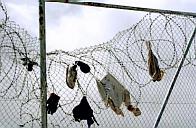 “We were just tired of living in the forest,” explained a young man from Guinea-Bissau. “There was nothing to eat, there was nothing to drink.” In mid-September, Africans began assaulting the frontier of Spain’s small enclaves in Africa en masse. Deploying crude ladders made of branches, they used their weight to bring the fences down in places. As one of them put it, “We go in a group and all jump at once. We know that some will get through, that others will be injured and others may die, but we have to get through, whatever the cost.”
“We were just tired of living in the forest,” explained a young man from Guinea-Bissau. “There was nothing to eat, there was nothing to drink.” In mid-September, Africans began assaulting the frontier of Spain’s small enclaves in Africa en masse. Deploying crude ladders made of branches, they used their weight to bring the fences down in places. As one of them put it, “We go in a group and all jump at once. We know that some will get through, that others will be injured and others may die, but we have to get through, whatever the cost.”
Rickard Sandell of the Royal Elcano Institute in Madrid predicted that the migration now underway could signal the prospect of an African “mass exodus” and armed conflict. What one sees today “is only the beginning of an immigration phenomenon that could evolve into one of the largest in history… the mass assault on Spain’s African border may just be a first warning of what to expect of the future.” With its shores only about 20 kilometers (12 miles) from the African coast, Spain is in the frontline of the fight against illegal immigration.
José Zapatero, Spain’s Prime Minister, said during a visit to the Canary Islands that his country would “spare no resources” to curb illegal immigration from Africa. However, his Socialist government launched an amnesty for more than 600,000 illegal immigrants the year before, thus greatly encouraging more illegal immigration. Moreover, due to the borderless nature of modern Europe caused by the European Union, once you get into Spain or any other EU country, you are free to move on to others.
The so-called Schengen Agreement, signed by a total of 26 countries, means that border posts and checks have been removed between European countries and common external border controls established. These are not always working very well. Since the pre-political loyalty, as Roger Scruton would have called it, for most people in Europe is with their nation states and not with “Europe,” not all countries care too much about upholding the borders of other nations. There have been reports of Italian police, for instance, releasing illegal immigrants on the border, free to go further north. Not their country, not their problem. So much for a “common European identity.”
At the time of the greatest population explosion in the history of the human race on its mainly Muslim southern borders, and when half of all Arab youths express a desire to move to the West, European authorities decide that it’s a brilliant idea to remove as many border controls as possible. And EU bureaucrats are quietly working to extend the “four freedoms of the EU,” including the free movement of people between countries, to include the Arab world.
Just like a scene from The Camp of the Saints, the controversial book by Jean Raspail, thousands of African immigrants have come ashore the Mediterranean island of Malta the past four years, most often making the crossing from Libya in open fishing boats, heading for the European mainland. And the tiny island of Malta feels overwhelmed. “We don’t want a multicultural society,” said Martin Degiorgio, a leader of an anti-immigration group. “Haven’t you seen the problems it has brought to France and Britain?” Scicluna, the government adviser, said that it was “utterly unrealistic to think you can pull up the drawbridge” and that the country needed time to adjust to immigration. “We’ve got to live with it. We’ve got to adapt to it. We have got to make it work,” he said.
Europe has lost, or even deliberately vacated, control of its borders, a situation that cannot be allowed to continue. Dr. Daniel Pipes has taken note of this issue, too: “The illegal immigration of non-Western peoples, I predict, will become an all-consuming issue in every Western country.” “Thus begins the first chapter of what promises to be a long and terrible story.” A bleak outlook, perhaps, but not unwarranted. Massive movements of people have in the past almost always triggered wars. There is little reason to expect our countries to be an exception. Tensions in Europe are already mounting due to immigration.
It is a matter of national security. According to a report by the Center for Immigration Studies, suspected or convicted foreign-born terrorists have routinely exploited federal immigration laws to enter or remain in the United States illegally. The always excellent African-American intellectual Thomas Sowell puts it this way: “We continue to hear about the ‘need’ for immigrants to do jobs that Americans will not do — even though these are all jobs that Americans have done for generations before mass illegal immigration became a way of life. Bombings in London, Madrid and the 9/11 terrorist attacks here are all part of the high price being paid today for decades of importing human time bombs from the Arab world. That in turn has been the fruit of an unwillingness to filter out people according to the countries they come from. (…) Europeans and Americans have for decades been playing Russian roulette with their loose immigration policies. The intelligentsia have told us that it would be wrong, and even racist, to set limits based on where the immigrants come from. There are thousands of Americans who might still be alive if we had banned immigration from Saudi Arabia — and perhaps that might be more important than the rhetoric of the intelligentsia.”
Nearly 200 million people in 2006 lived outside their country of origin. That is a number similar to the entire planet’s population during what we in Western history call the Migration Period, which triggered the downfall of the Roman Empire in the 4th and 5th centuries. The similarities have not gone unnoticed by everybody.
Rear Admiral Chris Parry, one of Britain’s most senior military strategists, has warned that Western civilization faces a threat on a par with the barbarian invasions that destroyed the Roman Empire. “Globalisation makes assimilation seem redundant and old-fashioned… [the process] acts as a sort of reverse colonisation, where groups of people are self-contained, going back and forth between their countries, exploiting sophisticated networks and using instant communication on phones and the internet.” Third World instability could lick at the edges of the West as pirates attack holidaymakers from fast boats. “At some time in the next 10 years it may not be safe to sail a yacht between Gibraltar and Malta.” The effects will be magnified as borders become more porous and some areas sink beyond effective government control. Parry expected the world population to grow to about 8.4 billion in 2035, with some giant metropolises becoming ungovernable. The subsequent mass population movements, Parry argued, could lead to the “Rome scenario.”
It is strange that those who call for stricter limitations on immigration in general and for an end to Muslim immigration are denounced as “anti-democratic forces” when it is the other way around. No nation, regardless of political system, can survive if it does not uphold its territorial integrity. Democracy has proved to be a superior system in promoting economic progress through liberty. But will democracy also prove strong enough to survive when faced with uncontrolled mass-immigration from failed states?
This is a powerful dilemma for democratic states in the 21st century, one that is not exclusive to Western nations. India, too, has big problems with millions of people crossing into the country illegally from Islamic Bangladesh, which is why the Indians want to build a border fence. Democratic states will either be strict enough to control their own borders, or they will cease to be democratic, perhaps cease to exist at all.
It is sometimes said that trends start in California, and spread to the rest of the world from there. But maybe trends in the 21st century start in Israel. The “trend” of Islamic suicide bombings has to a great extent been pioneered in Israel. Maybe some of the Israeli countermeasures, such as building a security fence to protect yourself against Islamic terrorism and from being demographically overwhelmed by Muslim immigration, will become trendy, too.
In the middle of the massive waves of migration in the 21st century it is suicidal to cling on to ideas of a “borderless world.” Yet in the West, there seems to be an alliance between the anti-national forces of the political Left and the Libertarian ideals and short-term desire for cheap labor of the political Right, who denounce their critics as “racists.” Perhaps we can call it an Alliance of Utopias. What these Western Utopians don’t understand is that there is another, competing Utopia of a borderless world: The Islamic Caliphate. As long as the Islamic world can dump their excess population in infidel countries and Muslims make up a majority – some say 70% — of the world’s refugees, any policies of not maintaining our borders will only pave the way for the Islamization of our lands. And it will happen with the blessing of many of our intellectuals, both right-wing and left-wing.
A plague on both their houses.
 Nabucco is also the name chosen for a natural gas pipeline planned to run from the Caspian Sea to Western Europe. The disagreement between Ukraine and Russia over their natural gas pipeline earlier this year drove up the price of natural gas and forced Europe to consider alternative energy supply routes. The Nabucco project was the result.
Nabucco is also the name chosen for a natural gas pipeline planned to run from the Caspian Sea to Western Europe. The disagreement between Ukraine and Russia over their natural gas pipeline earlier this year drove up the price of natural gas and forced Europe to consider alternative energy supply routes. The Nabucco project was the result.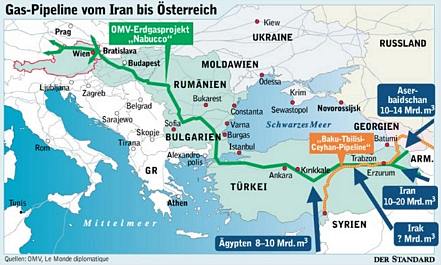




 Historian
Historian  Lenin stated that “Marxism is based on internationalism or it is nothing.” “The emancipation of the workers is not a local, nor a national, but an international problem,” wrote Marx. Karl Marx has defined the essence of Socialism as abolishing private property. Let’s assume for a moment that a country can be treated as the “property” of its citizens. Its inhabitants are responsible for creating its infrastructure. They have built its roads and communications, its schools, universities and medical facilities. They have created its political institutions and instilled in its people the mental capacities needed for upholding them. Is it then wrong for the citizens of this country to want to enjoy the benefits of what they have themselves created?
Lenin stated that “Marxism is based on internationalism or it is nothing.” “The emancipation of the workers is not a local, nor a national, but an international problem,” wrote Marx. Karl Marx has defined the essence of Socialism as abolishing private property. Let’s assume for a moment that a country can be treated as the “property” of its citizens. Its inhabitants are responsible for creating its infrastructure. They have built its roads and communications, its schools, universities and medical facilities. They have created its political institutions and instilled in its people the mental capacities needed for upholding them. Is it then wrong for the citizens of this country to want to enjoy the benefits of what they have themselves created? He quotes the then president of Bangladesh, Sheikh Hasina, who in 2000 was asked by the Los Angeles Times how the country was going to feed, clothe, house and employ the expected doubling of her population by 2050. She replied: “We’ll send them to America. Globalisation will take that problem away, as you free up all factors of production, also labour. There’ll be free movement, country to country. Globalisation in its purest form should not have any boundaries, so small countries with big populations should be able to send population to countries with big boundaries and small populations.”
He quotes the then president of Bangladesh, Sheikh Hasina, who in 2000 was asked by the Los Angeles Times how the country was going to feed, clothe, house and employ the expected doubling of her population by 2050. She replied: “We’ll send them to America. Globalisation will take that problem away, as you free up all factors of production, also labour. There’ll be free movement, country to country. Globalisation in its purest form should not have any boundaries, so small countries with big populations should be able to send population to countries with big boundaries and small populations.” “We were just tired of living in the forest,” explained a young man from
“We were just tired of living in the forest,” explained a young man from  May need to revise that Katyusha range figure. Carl from Jerusalem reports that two Katyushas fired from somewhere in Lebanon hit Haifa this morning. Haifa is the largest city in northern Israel, and the country’s largest port, about 26 miles from the Lebanon border. I wonder if the rockets that landed in Haifa are the usual Katyushas, or if they are instead Iranian Fajr-5’s? The Fajr-5 has a range of about 45 miles, and is believed to be in the possession of Iran’s Hezbollah clients.
May need to revise that Katyusha range figure. Carl from Jerusalem reports that two Katyushas fired from somewhere in Lebanon hit Haifa this morning. Haifa is the largest city in northern Israel, and the country’s largest port, about 26 miles from the Lebanon border. I wonder if the rockets that landed in Haifa are the usual Katyushas, or if they are instead Iranian Fajr-5’s? The Fajr-5 has a range of about 45 miles, and is believed to be in the possession of Iran’s Hezbollah clients. As noted yesterday, the Hamas terrorist
As noted yesterday, the Hamas terrorist 
 For the tens of thousands of years of the Würm glaciation, Paleolithic hunting tribes lived at the southern edge of the ice fields in Europe and Asia. About 10,000 years ago, as the last of the glaciers receded, some groups chose to follow the retreating ice northwards. While their cousins in the warmer regions to the south were smelting metal, these hardy tribes were knapping flint. While the southerners were inventing agriculture, slavery, and the ziggurat, the northerners were hunting large game in the chilly grasslands and forests of Central Asia and Northern Europe.
For the tens of thousands of years of the Würm glaciation, Paleolithic hunting tribes lived at the southern edge of the ice fields in Europe and Asia. About 10,000 years ago, as the last of the glaciers receded, some groups chose to follow the retreating ice northwards. While their cousins in the warmer regions to the south were smelting metal, these hardy tribes were knapping flint. While the southerners were inventing agriculture, slavery, and the ziggurat, the northerners were hunting large game in the chilly grasslands and forests of Central Asia and Northern Europe.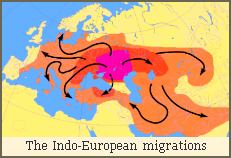

 When the monastery at Lindisfarne in northern England was sacked by the Vikings in 793, it was recorded by the Northumbrian chronicler Alcuin as an event of unspeakable brutality. Yet two and a half centuries earlier it was Alcuin’s ancestors, the heathen Saxons, who had slaughtered and raped their way through the Christian communities of Britain. The Vikings were scarcely different; they were just late to the game.
When the monastery at Lindisfarne in northern England was sacked by the Vikings in 793, it was recorded by the Northumbrian chronicler Alcuin as an event of unspeakable brutality. Yet two and a half centuries earlier it was Alcuin’s ancestors, the heathen Saxons, who had slaughtered and raped their way through the Christian communities of Britain. The Vikings were scarcely different; they were just late to the game.
 But, despite the conquest and slaughter, and unlike the Arabs (who were dedicated slave-traders), the Vikings did not generally take slaves during their raids. Perhaps the necessity of rapid movement by sea and the long passages through the cold northern waters discouraged the practice.
But, despite the conquest and slaughter, and unlike the Arabs (who were dedicated slave-traders), the Vikings did not generally take slaves during their raids. Perhaps the necessity of rapid movement by sea and the long passages through the cold northern waters discouraged the practice. A yeoman’s rights were granted directly to him by God and could not be revoked by his sovereign. The Normans, in order to rule their new lands successfully, were required to recognize the “ancient liberties” of their Anglo-Saxon subjects. When his rebellious barons compelled the Norman King John to sign the Magna Carta in 1215, they were simply retaking their ancient liberties. The customs of the men of the North thus survived despite the Normans and became the English Common Law.
A yeoman’s rights were granted directly to him by God and could not be revoked by his sovereign. The Normans, in order to rule their new lands successfully, were required to recognize the “ancient liberties” of their Anglo-Saxon subjects. When his rebellious barons compelled the Norman King John to sign the Magna Carta in 1215, they were simply retaking their ancient liberties. The customs of the men of the North thus survived despite the Normans and became the English Common Law. These, in turn, were soon supplemented by massive numbers of Celts, first the Scots-Irish, driven by poverty and political maginalization. They pushed beyond the English settlers into the Appalachian highlands. After the Revolution, they in their turn were supplemented by waves of surplus Irish. Near where I live in Virginia, there was a large Welsh community, drawn here by geography: the ample deposits of slate created a demand for their well-known quarrying expertise.
These, in turn, were soon supplemented by massive numbers of Celts, first the Scots-Irish, driven by poverty and political maginalization. They pushed beyond the English settlers into the Appalachian highlands. After the Revolution, they in their turn were supplemented by waves of surplus Irish. Near where I live in Virginia, there was a large Welsh community, drawn here by geography: the ample deposits of slate created a demand for their well-known quarrying expertise. North America received further transfusions of northern European blood throughout the 18th and 19th centuries. The Dutch and the Germans were already well-represented in the original colonies. In the later 19th century Swedes and Norwegians spread across the northern plains of the United States and Canada, bringing with them an ability to withstand the harsh winters and an additional dose of the spirit of the North. The same folk who settled Greenland and Iceland came centuries later to homestead the frozen lake country of Minnesota and North Dakota.
North America received further transfusions of northern European blood throughout the 18th and 19th centuries. The Dutch and the Germans were already well-represented in the original colonies. In the later 19th century Swedes and Norwegians spread across the northern plains of the United States and Canada, bringing with them an ability to withstand the harsh winters and an additional dose of the spirit of the North. The same folk who settled Greenland and Iceland came centuries later to homestead the frozen lake country of Minnesota and North Dakota.
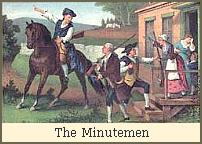 The Pharaonic model was neither understood nor welcomed here. We are the descendents of those Paleolithic hunters, and when the Minutemen rose up in self-defense, they were, in effect, confronting another mastodon with their flint-tipped spears. They were a voluntary and self-organized group, taking collective action by common consent to serve a common purpose.
The Pharaonic model was neither understood nor welcomed here. We are the descendents of those Paleolithic hunters, and when the Minutemen rose up in self-defense, they were, in effect, confronting another mastodon with their flint-tipped spears. They were a voluntary and self-organized group, taking collective action by common consent to serve a common purpose.
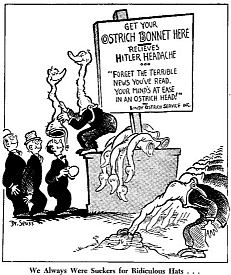
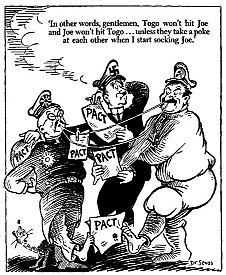

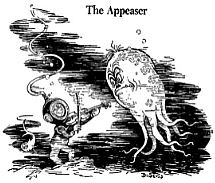
 Last week all Swedish politicians of any weight, their supporters and partisans, lobbyists, and also ordinary people met up at Almedalen in the town of Visby on the Baltic island of Gotland. This has been a growing tradition since 1968, when the custom was introduced by the socialist Olof Palme (at that time Minister of Education) giving an improvised speech to a few believers from a lorry platform.
Last week all Swedish politicians of any weight, their supporters and partisans, lobbyists, and also ordinary people met up at Almedalen in the town of Visby on the Baltic island of Gotland. This has been a growing tradition since 1968, when the custom was introduced by the socialist Olof Palme (at that time Minister of Education) giving an improvised speech to a few believers from a lorry platform.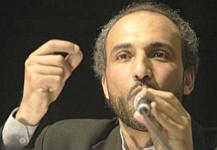 400,000-500,000 Muslims live in Sweden and there are millions of us throughout Europe. We can either focus on the few bad apples or we can look at the vast majority, the mainstream. Arabs and Muslims have long contributed to European society and culture. It is therefore wrong to refer to Europe’s Judeo-Christian history. Tell me how you read your past and I’ll show you how you view your present. One of the biggest problems is ignorance. There is a deep identity crisis in Europe. We must define a new “We.”
400,000-500,000 Muslims live in Sweden and there are millions of us throughout Europe. We can either focus on the few bad apples or we can look at the vast majority, the mainstream. Arabs and Muslims have long contributed to European society and culture. It is therefore wrong to refer to Europe’s Judeo-Christian history. Tell me how you read your past and I’ll show you how you view your present. One of the biggest problems is ignorance. There is a deep identity crisis in Europe. We must define a new “We.” Trafalgar, in which the British Royal Navy saw off a combined Franco-Spanish fleet off the southern coast of Spain, marked a crucial defeat for Napoleon’s sea power. Nelson himself fell during the battle. Apparently, we now live in the age of the Borderless Utopia and the Brotherhood of Man, and shouldn’t be too hung up on Spain, England, France or other irrelevant historical details. It’s just rude. Maybe soon, we will hear that WW1 or even WW2 was fought between the Yellow Team and the Blue Team. We wouldn’t want to insult anybody, would we?
Trafalgar, in which the British Royal Navy saw off a combined Franco-Spanish fleet off the southern coast of Spain, marked a crucial defeat for Napoleon’s sea power. Nelson himself fell during the battle. Apparently, we now live in the age of the Borderless Utopia and the Brotherhood of Man, and shouldn’t be too hung up on Spain, England, France or other irrelevant historical details. It’s just rude. Maybe soon, we will hear that WW1 or even WW2 was fought between the Yellow Team and the Blue Team. We wouldn’t want to insult anybody, would we? The director of Norway’s immigration agency, Manuela Ramin-Osmundsen, arrived in the country in the 1990s. Upon accepting the job as heading the country’s day-to-day handling of immigration, she vowed that it would
The director of Norway’s immigration agency, Manuela Ramin-Osmundsen, arrived in the country in the 1990s. Upon accepting the job as heading the country’s day-to-day handling of immigration, she vowed that it would  Is it “xenophobia” if Norwegians, who make up less than a tenth of a percentage point of the world’s population, worry about being overwhelmed by immigration? As American
Is it “xenophobia” if Norwegians, who make up less than a tenth of a percentage point of the world’s population, worry about being overwhelmed by immigration? As American 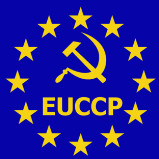 However, there are others who understand perfectly well that Multiculturalism is only temporary, and use it as a means to further their own ideological ends. They use Multiculturalism and massive immigration as a battering ram to smash the Old Order of Judeo-Christian nation states to pave way for a New Order, be that a pan-European super-state or the global dictatorship of the proletariat. Creative destruction, in other words. And this is where I strongly disagree with Mr. Hauge, who thinks Multiculturalism “just happened,” an accident of nature. I don’t know; much of it sounds pretty man-made to me.
However, there are others who understand perfectly well that Multiculturalism is only temporary, and use it as a means to further their own ideological ends. They use Multiculturalism and massive immigration as a battering ram to smash the Old Order of Judeo-Christian nation states to pave way for a New Order, be that a pan-European super-state or the global dictatorship of the proletariat. Creative destruction, in other words. And this is where I strongly disagree with Mr. Hauge, who thinks Multiculturalism “just happened,” an accident of nature. I don’t know; much of it sounds pretty man-made to me.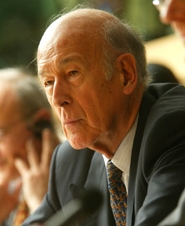 The political élites are involved in a Project — for it is a deliberate, organized project — to dissolve the nation states of the West. It is a coalition of several groups: Leftists, who hate the capitalist, Christian West in general and are influenced by Marxist ideas about the nation state being an obstacle to international liberation. However, there are also centrist and even so-called conservative groups participating in this. Valéry Giscard d’Estaing, the author of the awful EU Constitution, is considered a conservative politician, who however has an enormous contempt for the intelligence of ordinary people and never cares to hide this fact.
The political élites are involved in a Project — for it is a deliberate, organized project — to dissolve the nation states of the West. It is a coalition of several groups: Leftists, who hate the capitalist, Christian West in general and are influenced by Marxist ideas about the nation state being an obstacle to international liberation. However, there are also centrist and even so-called conservative groups participating in this. Valéry Giscard d’Estaing, the author of the awful EU Constitution, is considered a conservative politician, who however has an enormous contempt for the intelligence of ordinary people and never cares to hide this fact.

 Now, we have the blogosphere, the virtual guillotine. We don’t chop the heads off stupid people, we just chop the heads off stupid people’s ideas. Maybe the world is making progress after all.
Now, we have the blogosphere, the virtual guillotine. We don’t chop the heads off stupid people, we just chop the heads off stupid people’s ideas. Maybe the world is making progress after all.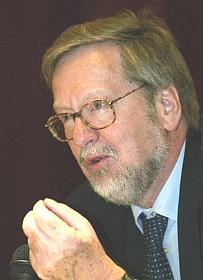 Per Stig Møller
Per Stig Møller
 I’m grateful to
I’m grateful to